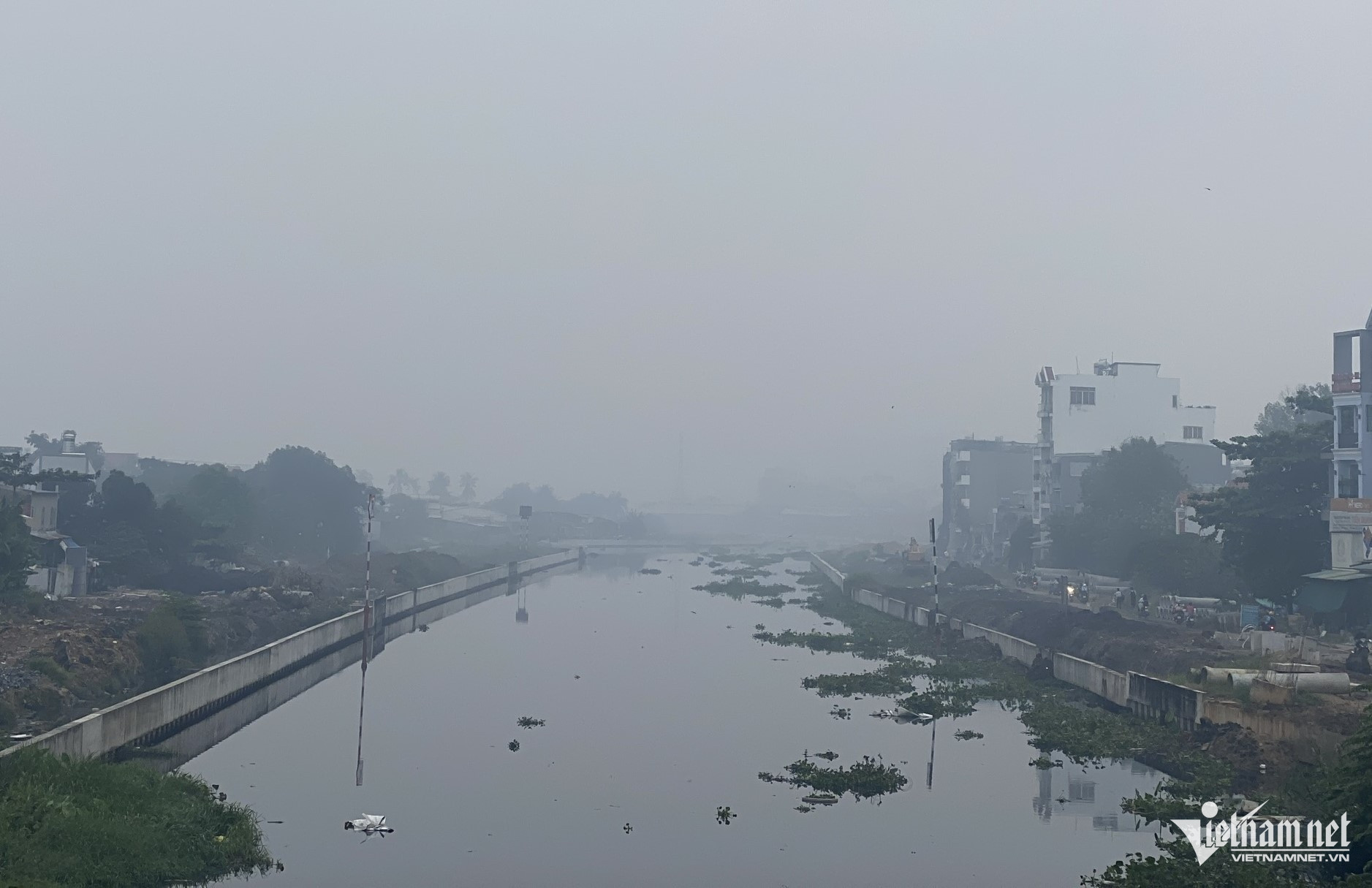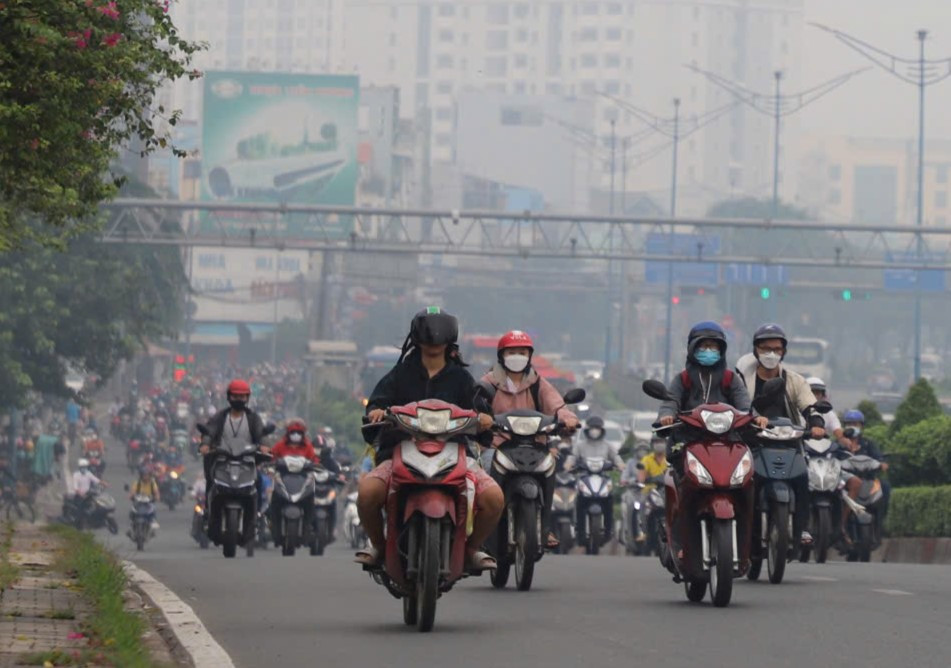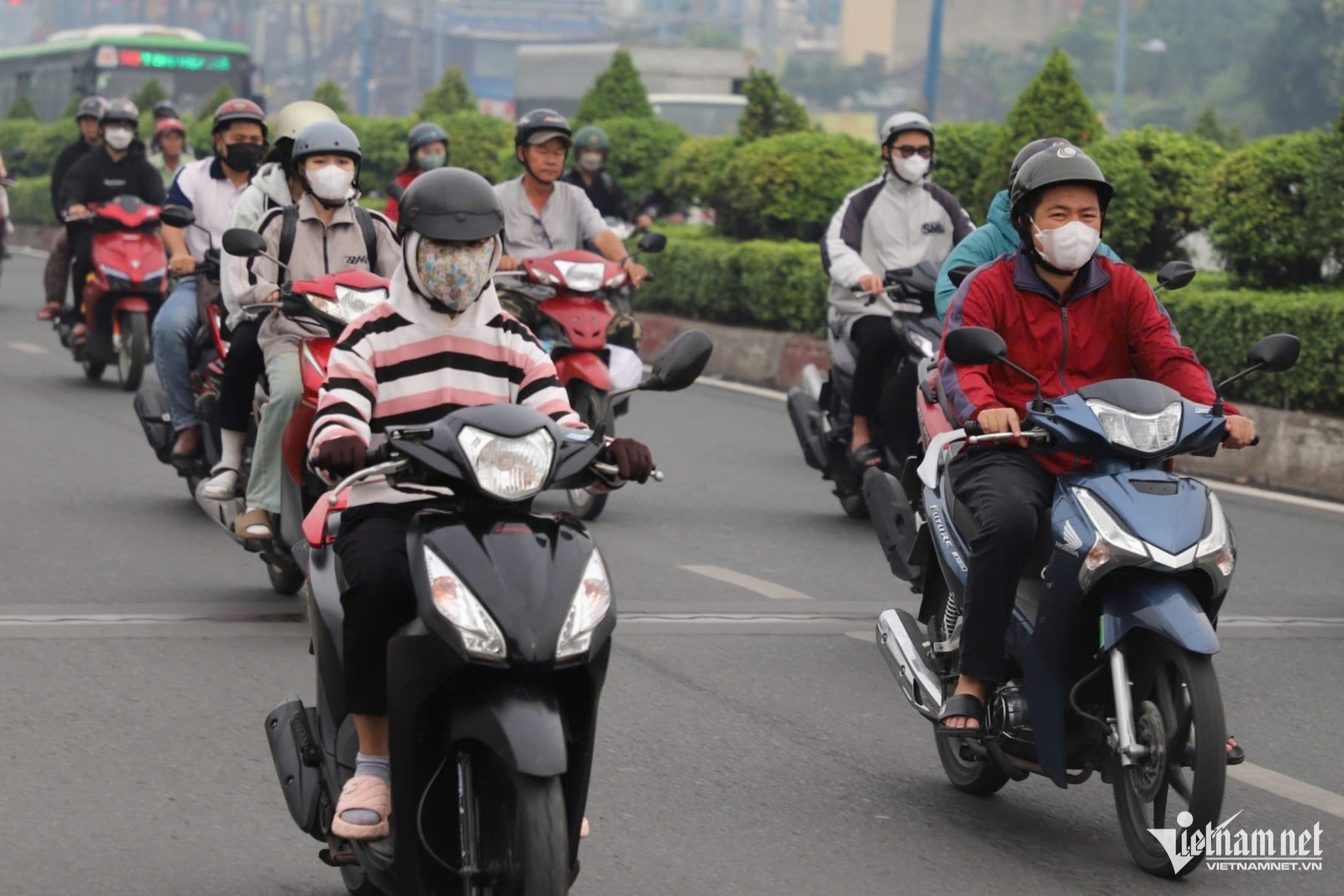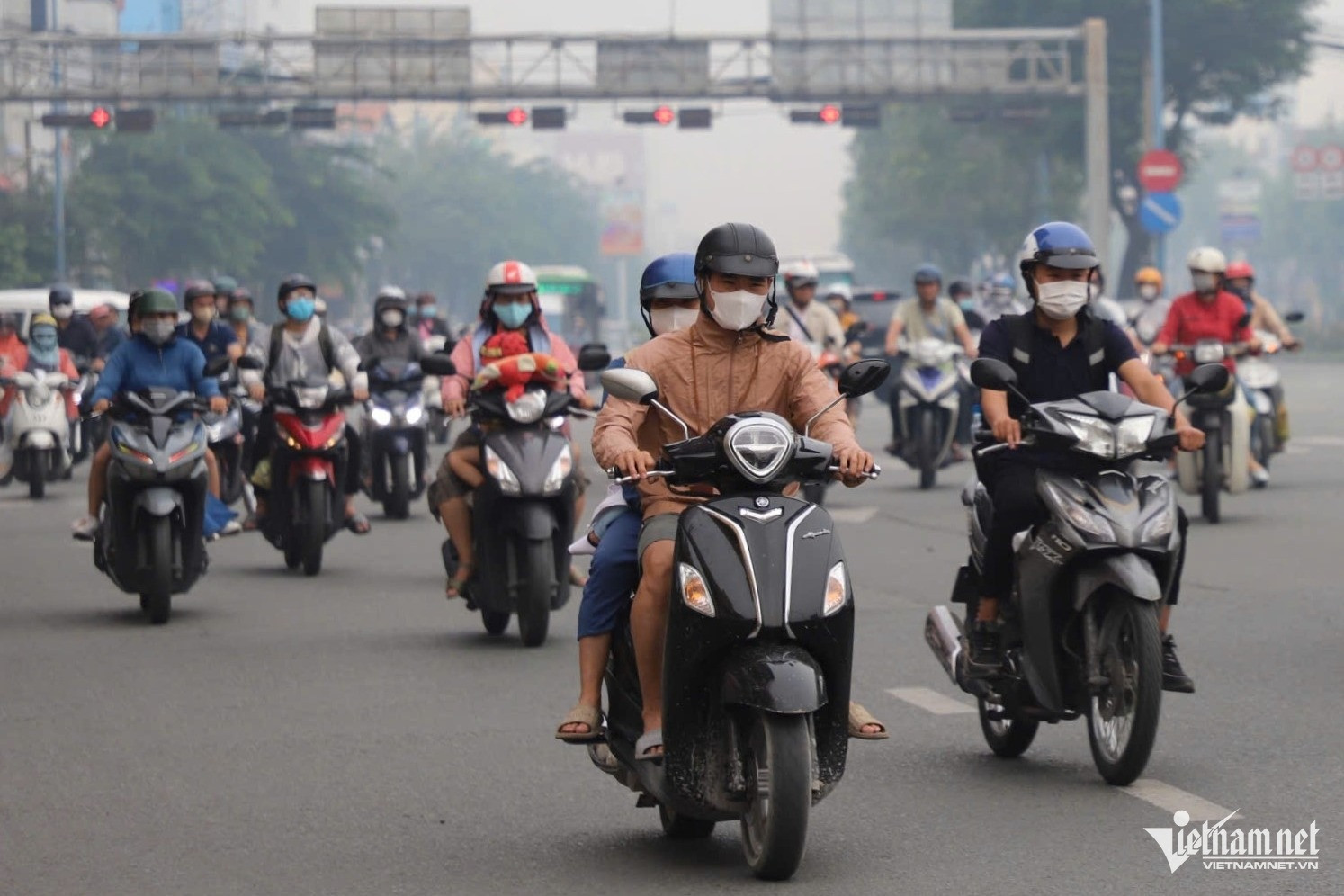Ho Chi Minh City (HCMC) has been engulfed in dense haze for several days, obscuring residential areas and skyscrapers while severely limiting visibility.
On the morning of December 6, a thick layer of haze blanketed the entire city, reducing visibility to under one kilometer. This phenomenon, which had lessened yesterday, intensified again early this morning.

The haze, combined with cool temperatures of 22–24°C in the early morning, created a chilly atmosphere. Residents venturing outside were seen wearing warm clothing, gloves, and masks to stay warm.
By 9 a.m., the haze persisted at both low and high altitudes, with minimal cloud cover and weak sunlight.

According to the Southern Regional Hydrometeorological Station, weather in southern Vietnam is currently influenced by the equatorial trough, which lies along latitudes 5–8 degrees north.
Northeasterly winds of moderate intensity prevail over the southern seas, while the subtropical high-pressure system extending over central Vietnam has slightly weakened. High-altitude easterly disturbances are gradually diminishing.
As a result, HCMC's weather alternates between periods of reduced cloud cover and intermittent sunshine. Rain showers and thunderstorms occur in the afternoon and evening, primarily in coastal areas to the east and the Mekong Delta, with decreasing rainfall compared to the previous 24 hours. Some thunderstorms may bring strong gusts of wind.
 |
 |
A meteorology expert attributed the persistent haze in HCMC to "mixed fog," a phenomenon caused by a combination of high humidity and air pollution.
Recent rains and elevated humidity levels in the city have created favorable conditions for moisture in the air. Coupled with pollutants such as smoke, dust, and fine particulate matter, these water droplets cling to suspended particles, forming a dense and opaque fog.
The expert warned against complacency, emphasizing the health risks posed by this phenomenon.
“The thick haze indicates a high concentration of airborne pollutants and fine particles, which can adversely affect health, especially for pregnant women and children. Residents should take precautions, such as wearing protective gear when going outside,” the expert advised.
Tuan Kiet